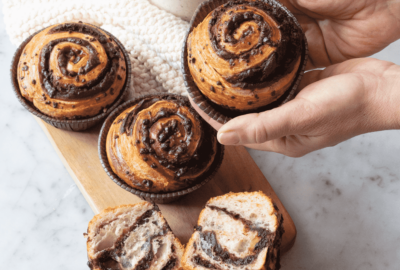By George McIvor, chairman of The Master Chefs of Great Britain
Competitions are an important part of the culinary calendar providing young chefs with opportunities to showcase their skills and receive valuable feedback from those much higher up the culinary ladder.
The prizes on offer are designed to provide experiences that may otherwise be out of reach and often involve work placements with notable chefs, which can enhance their CVs and, in some cases secure new job opportunities.
As chairman of The Master Chefs of Great Britain, I’ve probably judged more competitions than most. The association itself runs three competitions for young chefs each year (Young Master Chef of the Year, the David Lyell Scholarship for young pastry chefs and Zest Quest Asia), as well as sponsoring a further three, and provides judges whenever asked.
How can chefs best prepare?
• Practice, practice then practice some more! The more you practice prior to the event, the better chance you have will you of succeeding in being able to present your food within the allotted time.
• Use only the freshest seasonal ingredients and do not overly contrive your dishes. Remember the judges have seen it all before.
• Focus on knife skills and sound recipe preparation and cooking methods.
• Season, taste, re-season your food.
• CRITICAL – there is no point having seven garnishes if you over or undercook the main ingredient in the dish. This is the major failing in most competitions.
• Manage your wastage and utilise your trim.
The judging process Usually your paper entry will be scrutinised by a panel of judges so ensure the brief for the competition has been followed to the letter and recipes and working methods are set out clearly, including recipe costing. This is your first chance to make an impression.
The judging panel will always favour an entry from competitors who have thought about the whole balance of their menu using the best seasonal produce and in particular ingredients from their local area, never be afraid to seek the advice of senior industry chefs who themselves have been competitors. The successful chefs all then go through to the heats, where they will be required to cook their chosen dishes in a live event.
What judges are looking for on the day? Competition judges are looking for chefs who can follow the competition criteria to the letter. Read then re-read the criteria to ensure you fully understand what you are being expected to create.
Dependant on the size of the competition the norm would be four to six judges – industry experts.
The basics to begin: clean fingernails, ensure your whites are spotless and pressed, and you must wear a toque or skull cap. First impressions are critical. I have seen many a competitor fail for not adhering to the above!!
From my personal stand point, the winner will be the one who has presented me with a dish that has great flavour, expertly judged seasoning, well-presented and served at the correct temperature and served within the time allowed.
Remember you start the competition with 100 points – the judges will remove points for mistakes and bad working practice during the competition.
At a recent competition we had a competitor who conformed to everything I have written above and was a surefire winner you would have thought, but he lost because he presented two plates instead of four. Remember – always read the criteria.
Entries are open for the Country Range Student Chef Challenge 2018. Visit www.countryrangestudentchef.co.uk for more details.



